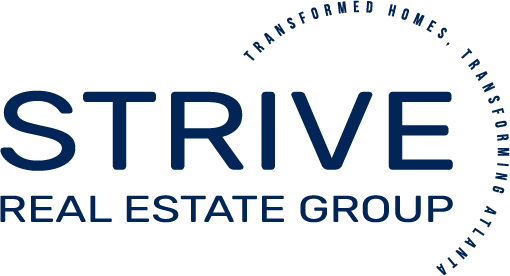Amidst the bustling streets and dynamic neighborhoods lies a golden opportunity for investors seeking to build wealth and secure their financial future through real estate. Let’s explore the many benefits of real estate investing and why it's a wise choice for those looking to grow their portfolios.
Steady Appreciation
Atlanta's real estate market has a track record of steady appreciation, making it an attractive option for investors seeking long-term capital growth. From historic neighborhoods like Virginia-Highland to emerging areas like Westside Provisions District, properties in Atlanta have shown consistent appreciation over time, providing investors with a reliable path to wealth accumulation.
Strong Rental Demand
With a growing population and a thriving job market fueled by industries such as technology, healthcare, and entertainment, Atlanta boasts strong rental demand. Whether it's young professionals flocking to Midtown, families seeking top-rated schools in Decatur, or students attending prestigious universities like Georgia Tech, there's no shortage of tenants looking for quality rental properties in Atlanta.
Diverse Investment Opportunities
Atlanta offers a diverse range of investment opportunities to suit every investor's preferences and budget. From single-family homes and condominiums to multifamily apartment buildings and commercial properties, there's something for everyone in Atlanta's real estate market. Investors can choose to focus on high-growth areas with redevelopment potential or established neighborhoods with stable rental markets, depending on their investment objectives.
Favorable Market Fundamentals
With a growing economy, favorable business climate, and relatively low cost of living compared to other major metropolitan areas, Atlanta boasts strong market fundamentals that support real estate investment. Low unemployment rates, robust job growth, and a steady influx of newcomers contribute to the city's resilience in the face of economic downturns, providing investors with confidence and stability.
Tax Incentives and Benefits
Real estate investors can take advantage of various tax incentives and benefits that help maximize their returns and minimize their tax liabilities. From deductions for mortgage interest and property taxes to depreciation allowances and tax-deferred exchanges, there are plenty of opportunities for savvy investors to optimize their tax strategy and enhance their overall profitability.
Thriving Culture and Lifestyle
Beyond its economic prospects, Atlanta offers a vibrant culture and lifestyle that appeal to residents and investors alike. From world-class dining and entertainment to outdoor recreation and cultural attractions, there's always something happening in Atlanta. Investing in real estate here not only offers financial rewards but also the opportunity to be part of a dynamic and growing community.
In conclusion, real estate investing presents a wealth of opportunities for investors seeking to grow their portfolios and secure their financial futures. With steady appreciation, strong rental demand, diverse investment options, favorable market fundamentals, tax incentives, and a thriving culture and lifestyle, Atlanta checks all the boxes for savvy investors looking to unlock wealth and prosperity through real estate. Whether you're a seasoned investor or just getting started, Atlanta's real estate market offers endless possibilities for growth and success and Strive is here to help! Book a call below to get the conversation started!




















